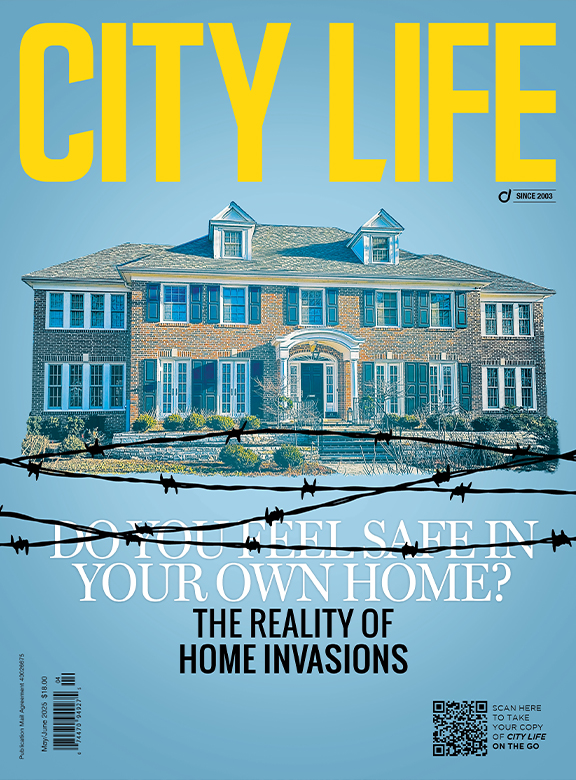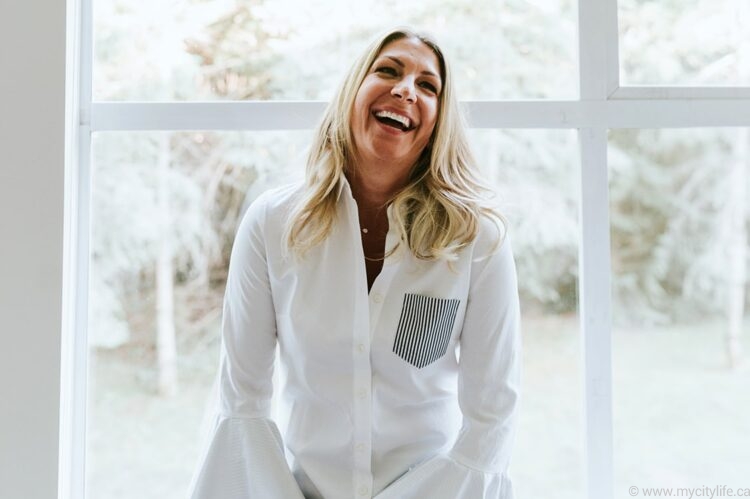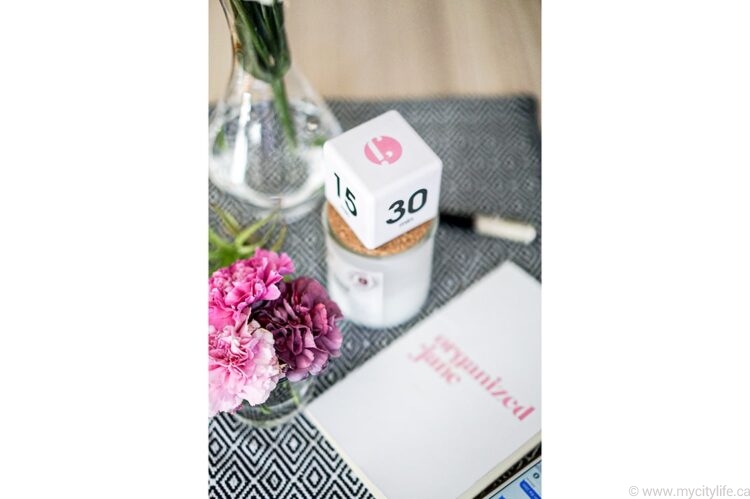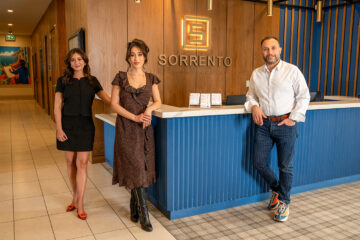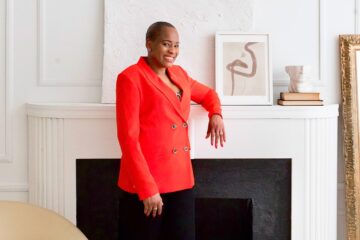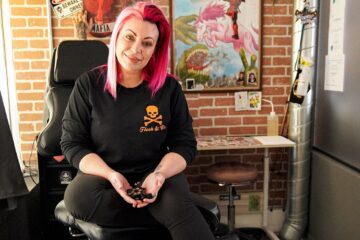Organized Jane: A Professional Organizer Makes Her Mark
From organizing friends’ closets as a young girl, entrepreneur Jane Stoller discusses how an organized space can save time and increase positivity.
Q. What is your definition of organized chaos?
A. For organizing the items you want to keep, you need to have a healthy perspective and prioritize items based on your lifestyle. This means getting really clear on what your current lifestyle is — not someone else’s and definitely not what you see in magazines. Understand what is important to you and your family in terms of where your time is spent and where you know you are losing time and efficiency. Then, make it a priority to improve those areas of your space.
Q. How can one keep their closets organized?
A. One of my mantras in life is that a laser-focused closet will also ensure that you are on the way to a structured, system-driven office space. Wasting even 10 minutes a day in your closet due to clutter adds up to 2.5 days a year — over 60 hours.
HERE ARE A FEW TIPS:
• Commit to regularly evaluating and tossing things as needed, as opposed to only doing yearly decluttering cleanouts. Your commitment to constant decluttering versus one-time binges will also drastically help with keeping track of new purchases, taking inventory of what you already have and avoiding overbuying.
• Determine a strategy for how to make closet decluttering a habit. For example, schedule quarterly decluttering sessions on your calendar to stay on track.
• Compartmentalize categories to start with, rather than your entire closet. This will be less stressful and give you a sense of accomplishment. Think about tackling your work clothes, then your shoes, handbags, winter gear, etc. Little by little, you will see progress.
• Avoid immediately replacing items due to the potential “empty closet syndrome.” Decluttering your closet can make you feel lighter and more organized, but it won’t immediately change your purchasing habits. Make sure you stay mindful in your decluttering habits to avoid impulsive purchases from the post-closet overhaul.
• Envision the rewards of not only how much time you will save in your closet, but also how much better you will feel with the carefully selected pieces that remain. Having a carefully curated closet helps you feel appreciative of the items you own. Knowing exactly what you have will also encourage you to take better care of your clothes. I have more fun tips, exercises and guides available at www.organizedjane.com and on my Instagram feed at @organizedjane.
Q. What are some of the advantages of getting dressed from an organized closet?
A. This step goes deeper than just time saving while looking for clothes. Especially for women, one major productivity waster can be attributed to the amount of time we spend worrying about what we are wearing, instead of focusing on our business. We want to look put together in business settings (yes, even on Zoom), and if you know that your wrinkled skirt is really going to bother you, you need to find a way to ensure your bottoms will not be wrinkled to avoid this distraction (or if you feel uncomfortable in a blouse, because you could not find the one you usually wear). These examples can lead to obsessing over our appearance, instead of whatever work it is you’re meant to be doing, which can be avoided by having a laser-focused closet to begin with.
Q. What benefits do you think people gain from an organized space?
A. Too many to list, with the main ones being reduced stress, increased happiness and boosted productivity.
Q. Tell us a bit about your childhood.
A. I grew up on a dairy farm in Seeley’s Bay, Ont., and I organized everything — even my pet cats. I remember being continually frustrated when my cats would not stay put. I then began to field a steady stream of requests to help friends clean and organize their closets and I would always happily oblige, because organizing is my passion. I would follow up each organizing session with detailed letters outlining what my friends could do to sustain the sense of order I’d created. I also dreamed of the big city life when I was a kid and I wanted to be a lawyer and write books about organizing. Turns out, I’m much more passionate about business than law, but the book dreams have come to fruition.
Q. When did you know you wanted to enter this field?
A. For a long time, I struggled to step outside my comfort zone and overcome my belief that I needed to become a corporate CEO to be successful and downplayed my passion for helping people and businesses get more organized. For me, the biggest challenges were overcoming confidence problems and that my passion was not a “real job.” Once I overcame my confidence issue, I was able to turn my passion into a real business.
Q. How do your friends describe you? (In three words.)
A. Action-taker, positive and kind.
Q. How has your role with your customers changed during this pandemic?
A. Before the pandemic hit, I shared my tips and advice at large, in-person speaking and networking events. This has now shifted to virtual, which was daunting at first, but I quickly realized I am now reaching an incredible global audience that might not have had access to me at in-person events. I am currently helping my clients organize the back end of their businesses, since most of them had to change some, if not all, aspects of their business operational processes to fit the new realities the pandemic has brought on.
Q. What mistakes have you made in the past that you wish you could change?
A. Initial reactions from a select group of corporate mentors scared me enough that, instead of seeking out advice from a variety of sources (which is what I should have done), I just got discouraged. Looking back, I cringe when thinking about how quickly I gave up the first time I launched my business. If I’d had the support that’s so much more readily available today, from Girl Boss empowerment coaches and online communities of successful entrepreneurs, or if I’d been proactive enough to look for that support back then, I probably wouldn’t have given up. Everyone needs a good network to support them, and I’m no exception. I owe so much of my current success to the wonderful and inspiring growth of lifestyle businesses, so many of which are led by amazing men and women, driven by an insatiable need to make the world a better, more welcoming place.
Q. What message do you want to share with our readers about the relationship between stress and organization?
A. Organizing goes beyond making sure your shirts are colour coded. I believe it also relates to life’s bigger picture. It’s important to have lifetime goals, which you can plan for by incorporating smaller goals into your daily and weekly life. Being organized can help you put thoughts and ideas, both large and small, into action. To sum it up, my favourite quote is from Benjamin Franklin: “For every minute spent organizing, an hour is earned.”
www.organizedjane.com
@organizedjane
Interview by Michelle Zerillo-Sosa
